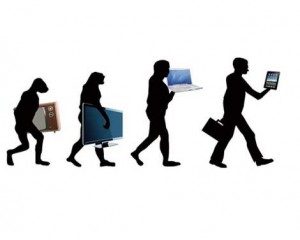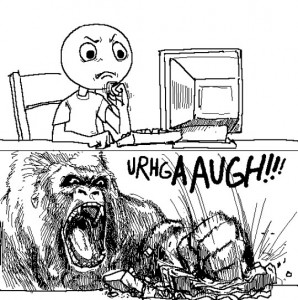This weeks lecture presented a variety of ideas around education, the future and why all this ‘stuff’ is so revenant to us as communications students. However once again they all related back to HTML. With the majority of symposium discussion in the last few weeks being primarily orientated around html, I’ve found myself becoming much more aware of not only the complexity of this subject but also the immediate relatively of it’s content.
Everything we do now bows down to the Internet. We revolve our everyday lives around it from messaging friends and family or emailing work clients . We bathe ourselves in technology from radio to TV, computers to phones. Yet in contemporary reality there is little distinction between these technologies. You can watch TV on your phone, just as you can listen to the radio on your TV. You can use your TV as a computer and a computer to make audio calls to people in distant locations. As a result of this, hypertext is something that can ultimately be woven throughout all things that we engage with on a daily basis and is no longer specified to your ordinary desktop computer. Integrated within hypertext is then also the component of hypermedia, which then goes beyond simply text but to images, audio and video. This then got me thinking. Has constant access to information readily available at our fingertips, changed the way we process information? If we are now unsure about something, we simply look this up on a search engine, or more accurately the search engine, google. Has this, or will this access encourage us to be more intellectually active or simply lazy? How often do you rely on someone else searching something and you gaining that information from them? Is this different to when we had to get up and physically go to a library if we wanted to find out a pice of unknown information?
Adrian then extended on my train of thought by questioning us on questions…Have we forgotten how to ask good questions? It seems our world today t has very much lost its clear-cut black and white colouration. So much of today is blurred with masses of grey yet has this been achieved through mass confusion or the evolution of a more curious and inquisitive race? something to think about…

